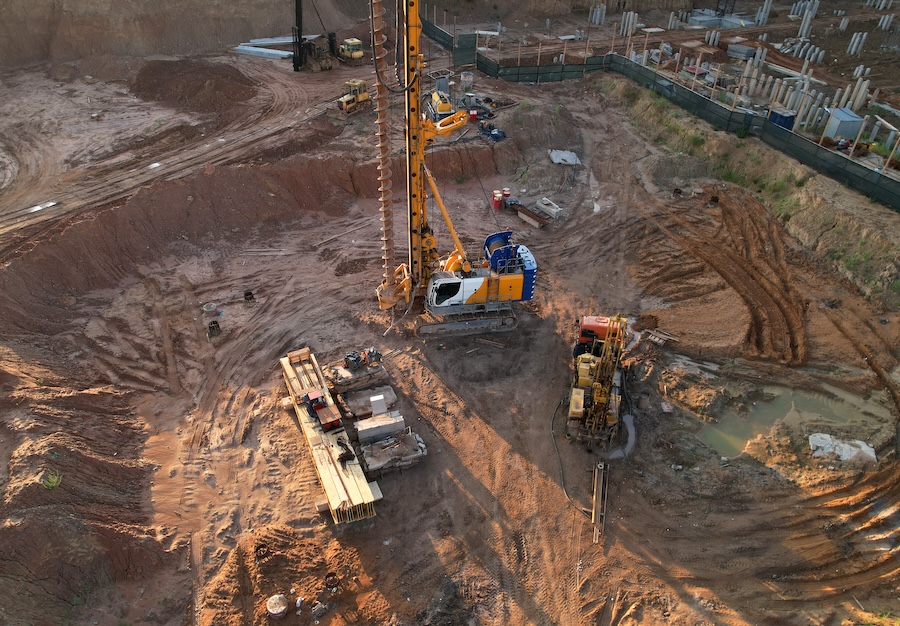Geotechnical Engineering What Is It and Why Is It Necessary for Construction Jobs?
Geotechnical Engineering What Is It and Why Is It Necessary for Construction Jobs?
Blog Article
A Detailed Summary of the Secret Providers Offered by Consulting Civil Engineering Professionals in Modern Construction
Consulting civil design experts are indispensable to the success of modern-day building jobs, providing a multifaceted suite of solutions that attend to different difficulties. From carrying out comprehensive site evaluations and expediency research studies to making sure conformity with strict regulative frameworks, these specialists lay the foundation for secure and lasting growth. Their competence reaches structural design and job monitoring, which are crucial for attaining cost-efficient and timely results. As the complexity of building projects proceeds to evolve, understanding the complete range of services they provide comes to be significantly essential for stakeholders. What effects does this have for the future of building practices?
Site Analysis and Usefulness Researches
When starting any kind of building task, understanding the site's features is essential, as it straight influences the usefulness and design of the advancement. Website analysis and feasibility studies are necessary parts of the pre-construction phase, enabling stakeholders to make educated choices. These researches involve a thorough evaluation of the physical, ecological, and regulatory facets of the site.

By integrating these aspects, civil design professionals can supply an alternative sight of the website's feasibility for the desired development. Eventually, detailed site evaluations and expediency researches lay the foundation for successful project execution, lessening threats and maximizing source allocation.
Structural Style and Analysis
Adhering to an extensive website assessment and feasibility study, the next essential phase in the construction process is architectural layout and evaluation. This necessary service entails the advancement of architectural systems that ensure the security, resilience, and financial viability of a job. Consulting civil engineers make use of advanced techniques and software application to assess lots, anxieties, and product residential or commercial properties, guaranteeing that styles conform with appropriate codes and standards.
Structural style encompasses numerous components, including beams, columns, structures, and bearing walls. By using principles of auto mechanics and product science, designers produce structures that can withstand ecological pressures such as wind, seismic task, and snow loads. The evaluation stage includes precise calculations to predict the behavior of these frameworks under different problems, ensuring they can perform as planned throughout their life-span.
Additionally, speaking with engineers collaborate very closely with designers and various other stakeholders to integrate structural aspects visually and functionally. The deliverables generally include detailed illustrations, specifications, and thorough records that facilitate the building and construction procedure. Inevitably, efficient architectural layout and evaluation are critical in reducing risks, maximizing resources, and achieving effective project outcomes in modern building and construction.
Job Monitoring and Sychronisation
Reliable task administration and coordination are vital parts of effective civil engineering solutions, guaranteeing that building and construction projects are provided promptly, within budget, and to the required high quality criteria. Consulting civil designers play an essential function in coordinating numerous task elements, from initial planning with to forecast conclusion. This entails not only the technical aspects of style and building and construction however additionally the strategic monitoring of stakeholders, sources, and timelines.

Additionally, civil design professionals emphasize the value of documentation and reporting throughout the job lifecycle - geotechnical engineering in south africa. By keeping accurate records, they ensure transparency and liability, which promotes trust fund amongst all events included. Inevitably, proficient job monitoring and coordination cause boosted project outcomes, lining up with customer assumptions and adding to the general success of the building undertaking
Regulatory Conformity and Permitting
Effective project administration lays the groundwork for attending to governing conformity and allowing demands in civil design projects. Guaranteeing adherence to regional, state, and federal guidelines is important for the successful implementation and conclusion of any type of construction endeavor. Consulting civil engineering experts play an essential function in browsing the complicated landscape of regulative frameworks and allowing procedures.
These professionals are well-versed in zoning laws, building codes, ecological regulations, and safety and security criteria that regulate building practices. They conduct complete evaluations to determine all appropriate regulations, making certain that tasks abide by needed legal demands. By teaming up with governmental companies and stakeholders, getting in touch with engineers help with the allowing procedure, simplifying approvals and reducing delays.
Additionally, they prepare and submit the requisite paperwork, such as site strategies, ecological effect analyses, and design records. This find this positive approach not just promotes conformity yet additionally improves job usefulness and sustainability. Inevitably, efficient regulatory compliance and allowing are important components of an effective civil engineering task, safeguarding both the setting and public welfare while adding to the overall integrity and success of building campaigns.
Lasting Layout Practices
Sustainable design techniques are significantly identified as crucial parts in civil design, with a concentrate on minimizing environmental effect while optimizing source efficiency. These techniques encompass a series of approaches targeted at promoting ecological balance and minimizing the carbon impact of construction projects.
One key aspect of sustainable style is the assimilation of renewable resource resources, such as solar and wind, right into structure layouts. This not just lowers dependence on nonrenewable fuel sources yet additionally boosts long-lasting expense savings. Furthermore, making use of sustainable materials, including recycled or quickly eco-friendly sources, plays a significant role in lessening waste and preserving natural deposits.
Water monitoring approaches, such as rainwater harvesting and efficient watering systems, are also important in sustainable design. These practices aid in lowering water intake and shielding local water ecological communities. Moreover, eco sensitive site preparation makes sure very little disruption to the all-natural landscape and advertises biodiversity.
Consulting civil engineering specialists contribute in carrying out these lasting design techniques. Their knowledge allows for the implementation of ingenious services that align with both regulatory needs and client goals, ultimately adding to a more lasting constructed atmosphere.
Conclusion
In recap, getting in touch with civil design experts supply essential services that underpin the success of modern-day construction jobs. Via thorough website evaluations, ingenious structural design, effective task administration, adherence to regulatory criteria, and the execution of sustainable techniques, these experts add to the production of risk-free, reliable, and environmentally accountable growths. The integration of these crucial solutions not only boosts job outcomes but likewise advertises a lasting future in the construction industry.
Reliable project monitoring and coordination are vital parts of successful civil design services, making sure that building tasks are supplied on time, within budget, and to the called for quality requirements. Consulting civil designers play a vital role in orchestrating different task elements, from preliminary planning via to forecast completion. Eventually, efficient task monitoring and control lead to boosted job results, lining up with client expectations and contributing to the overall success of the building venture.

Report this page